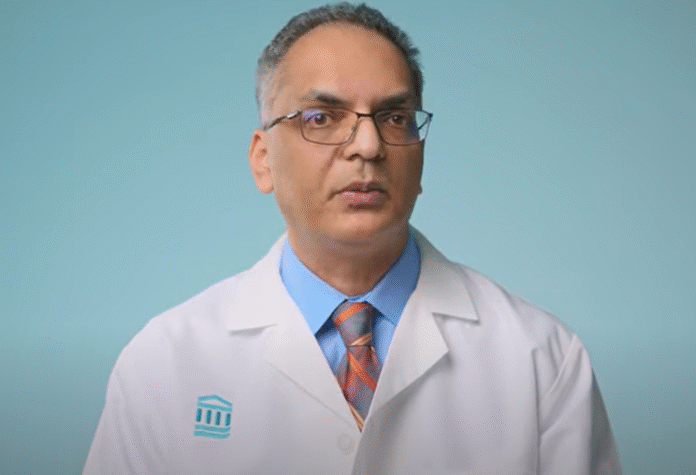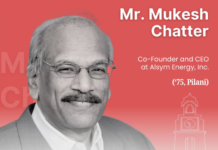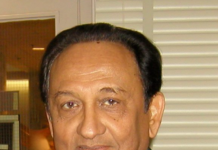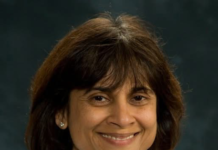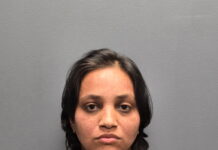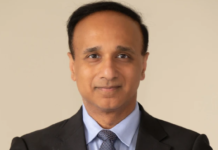BOSTON–“Integrity is not situational. Service is a habit. And the way you treat people matters more than anything on your CV.” These are the words that define the legacy of Dr. Anil K. Chandraker, MD, a pioneering transplant nephrologist, educator, and global leader in transplantation medicine.
On November 1, 2025, the New England Choice Awards will honor Dr. Chandraker with the Healthcare Trailblazer Award, recognizing a lifetime of clinical brilliance, transformational leadership, and tireless dedication to the well-being of patients and communities across the globe.
To buy a ticket for the gala, please click here.
A man of science, service, and story, Dr. Chandraker’s career is a masterclass in how one physician can change the course of a field—not only through discovery, but by mentorship, policy, and deeply human care.
As former President of the American Society of Transplantation, Dr. Chandraker was instrumental in reshaping national transplant policy. He led the creation of the Transplant Therapeutics Consortium, a first-of-its-kind public-private initiative that helped fast-track new therapies for patients while modernizing how success is measured in transplantation. His mission? “To care for this patient better today.” And he’s pursued that mission with relentless energy and purpose.
His prolific research—over 250 peer-reviewed publications—has informed guidelines and protocols followed by transplant centers around the world. Yet, even with such extraordinary scholarly output, he remains firmly grounded in the real-world application of knowledge: “Generating evidence is necessary but not sufficient,” he says. “We need to ensure discoveries actually reach the patients who need them.”
From the clinics of Brigham and Women’s Hospital to the leadership corridors of UMass Memorial Health, where he now serves as Chief of Nephrology, Dr. Chandraker has always seen himself first and foremost as a clinician. His efforts to bridge bedside insight with national policy, and to translate cutting-edge science into scalable practice, have made him one of the most respected voices in his field.
A sought-after educator, Dr. Chandraker is perhaps best known among medical trainees as the force behind Harvard’s renowned Renal Board Review Course, which has trained generations of nephrologists and transplant specialists. For many physicians across the U.S. and beyond, he is not just a mentor—he is the mentor.
His values—curiosity, conviction, humility, and the deep belief in service—are reflected in everything from the books he reads to the organizations he supports. Whether citing The Autobiography of Malcolm X or championing India’s MOHAN Foundation for organ donation, Dr. Chandraker speaks the language of transformation—of minds, systems, and lives.
Now, as he receives the 2025 Healthcare Trailblazer Award, we celebrate not only the milestones of an extraordinary career, but the mindset behind them: a tireless pursuit of better outcomes, and a belief that real success is found in “steady, humane increments”—a patient sleeping peacefully, a mentee finding their voice, a family given hope.
Below is a candid Q&A with Dr. Chandraker, offering further insights into the values and experiences that have shaped his journey:
Q&A with Dr. Anil Chandraker
INDIA New England News: Who has had the greatest influence on your personal and professional life?
Anil Chandraker: My parents. Their example of steadiness, sacrifice, and quiet ambition shaped both how I approach my patients and how I try to show up for colleagues and trainees. From them I learned that integrity is not situational, that service is a habit, and that the way you treat people matters more than anything you put on a CV. Since college, my wife, Samia Chandraker—a lawyer and unwaveringly supportive partner—has been my daily compass; her clear judgment has guided our family, and in every single decision about our children, she has been correct. Watching the way she reasons, advocates, and leads at home and in her profession has made me a more thoughtful clinician, steadier leader, and better mentor.
INE: What are your three all-time favorite books, and why?
AC: The Panda’s Thumb (and other essays) by Stephen Jay Gould nourished my love for science as a story—curiosity grounded in evidence, told with humility. The Autobiography of Malcolm X taught me about transformation, courage, and the power of a mind that keeps evolving. I also like to read about history, because history gives context; it reminds me that every medical decision happens within a longer arc of ideas, institutions, and the people they serve.
INE: What are two quotes or sayings that you live by?
AC: “The only power you have is the power of persuasion,” a reminder that listening and reason change more minds than authority ever will. And a personal maxim I return to often: “Chase what inspires you and throw yourself into it”—because sustained purpose beats momentary prestige.
INE: What is one hobby that brings you joy or peace?
AC: Reading and reflecting. A quiet 30 minutes here and there with a book helps me reset, see patterns I missed during a busy clinic day, and reconnect with the “why” behind the work.
INE: What are you most passionate about?
AC: Once upon a time it was politics; today it’s transplantation in all its dimensions—caring for patients before and after surgery, improving immunosuppression, expanding access, and building systems that honor donors and their families. I’ve always seen myself first as a clinician; research has been my way to answer a simple question: how can we care for this patient better today? In recent years I’ve realized that generating evidence is necessary but not sufficient—too many effective treatments never make it into routine practice. I’m therefore increasingly focused on translational and implementation work: taking insights from the bedside to studies and then into guidelines, protocols, and policy so they reliably change care. That means working at national and international levels to clear the barriers that block adoption—whether regulatory, financial, workforce, or infrastructural—by simplifying approval pathways, aligning incentives and reimbursement.
INE: What motivates you to do the work you do?
AC: The desire not to have had a wasted life and make sure that whatever I do is important in its own way regardless of the exact focus that my professional life is taking at the time. This also relates to my competitiveness.
INE: Do you support or volunteer with any nonprofit or charitable causes? If so, which ones and why?
AC: I have always been impressed by the MOHAN Foundation—a trusted organ donation nonprofit in India—their work resonates with me because it couples public awareness with practical training to make more transplants possible. Supporting their mission helps convert goodwill into real surgeries and saved lives.
INE: If you were given a second chance at a different career, what would it be—and what draws you to it?
AC: A historian. I’m drawn to archives, primary sources, and the discipline of reconstructing how we came to believe what we believe; in another life I’d write the back story of medical ideas and the people who moved them forward.
INE: What’s the biggest challenge you’ve overcome, and what did you learn from it?
AC: Believing in myself. Medicine tests conviction; learning to trust my preparation—while still inviting critique—taught me to take on harder problems, to ask better questions, and to advocate more confidently for patients.
INE: What does “community” mean to you?
AC: Community is layered. My heritage is Indian, my upbringing was multicultural British, and I’ve lived in the U.S. for over three decades; those layers teach me to listen across differences and to build bridges—whether at a bedside, in a lab meeting, or with donor families.
INE: How do you define success today—has that definition evolved over time?
AC: More and more, success looks like smaller steps on shorter timelines: a patient sleeping comfortably at home, a fellow gaining confidence, a policy tweaked to make donation easier. I once measured success in big endpoints; now I count it in steady, humane increments.
INE: What advice would you give to someone following in your footsteps?
AC: Be passionate about what you do. Choose work that keeps you curious, find mentors and be one, accept uncertainty as part of growth, and measure your impact by the lives you help rather than the lines on your résumé.
Dr. Chandraker will be honored at the New England Choice Awards Gala on November 1, 2025, at the Burlington Marriott Hotel. His story is not just one of professional excellence—but of purpose, humility, and the enduring power of mentorship and care.


